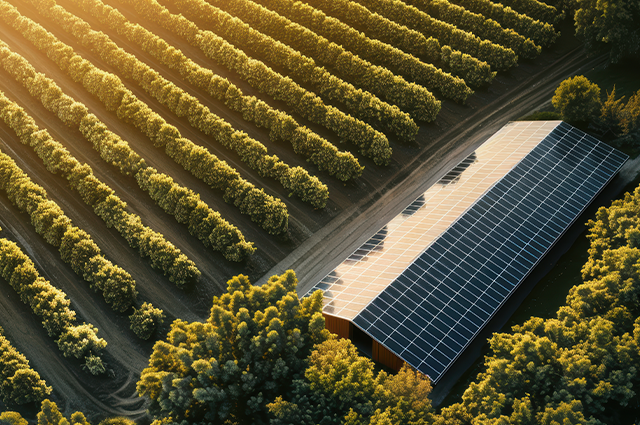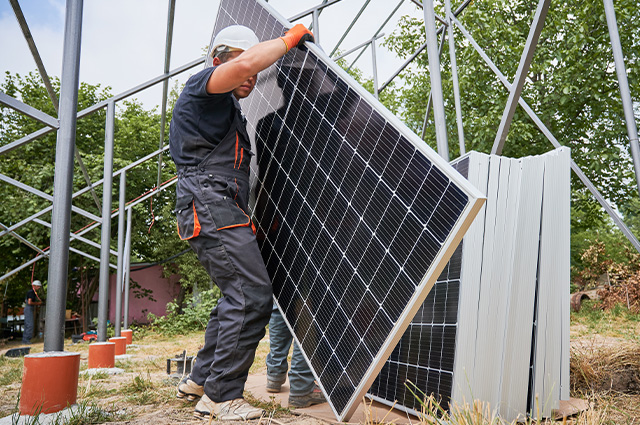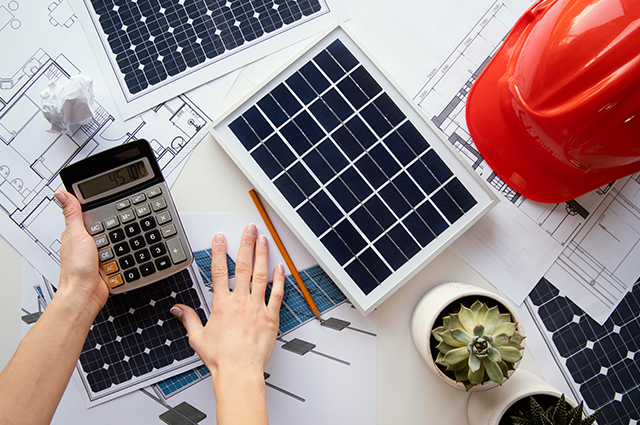Solar energy has become an essential solution for the agricultural sector, offering a sustainable and cost-effective alternative for producers. With the growing need to cut operating costs and improve efficiency, adopting solar panels for agriculture has become a strategic move to ensure the competitiveness and sustainability of farm operations.
Solar Energy and Sustainable Agriculture
Sustainable agriculture seeks to adopt practices that minimize environmental impact and promote the efficient use of natural resources. Solar energy plays a key role in this transition, allowing farmers to reduce their dependence on the electrical grid and fossil fuels.
By using solar irrigation systems and other renewable-energy technologies, agricultural producers not only lower costs but also increase their resilience to fluctuations in electricity and fuel prices.
Cutting Production Costs with Solar Power
Electricity represents a significant share of operating expenses in agriculture, especially for those who rely on irrigation systems, refrigeration, lighting, and other electrical equipment. Implementing solar panels for agriculture can deliver benefits such as:
Lower electricity bills: Generating your own power dramatically reduces energy costs.
Reduced dependence on the grid: Increases in the energy component and/or network charges are less directly reflected in the final bill, providing greater insulation from price volatility.
Access to incentives and support: Various incentives and financing programs make investment in solar energy easier.
Low maintenance and long service life: Solar systems require little maintenance and can last more than 25 years, ensuring long-term return on investment.
Off-grid systems: Possibility to power production-support infrastructure via a photovoltaic system with storage in locations where extending a grid service line is financially unviable.
Where Can Solar Energy Be Applied in the Agricultural Sector?
Solar energy can be used across multiple areas of agriculture, making operations more efficient and sustainable:
1. Solar Irrigation Systems / Off-Grid Systems
Solar-powered irrigation systems pump water to crops and reservoirs without relying on the grid or diesel generators. These solutions are ideal for remote areas and cut fuel costs, making irrigation more efficient and sustainable.
2. Storage and Refrigeration
Producers who need to preserve perishable goods can use solar energy to power cold rooms and maintain food quality, preventing losses and waste.
3. Greenhouses and Lighting
Power generated by solar panels can be directed to heated greenhouses, ventilation systems, and lighting on farms, ensuring a controlled environment for crops.
4. Agricultural Machinery and Equipment
Increasingly, agricultural machinery is being developed to run on solar power, reducing the need for fossil fuels and contributing to sustainable farming.
In addition to using solar energy, farmers can adopt practices that boost energy efficiency in the agricultural sector, such as:
Efficient equipment: Modern machinery and irrigation systems consume less energy and improve productivity.
Smart energy storage: Installing batteries helps store solar energy for use at night or during periods of lower solar irradiation.
Monitoring and consumption management: Remote-control systems and smart sensors optimize electricity use and prevent waste.
Conclusion
Adopting solar energy in agriculture is a smart decision for farmers who want to reduce costs and make their operations more sustainable. With the installation of solar panels for agriculture, the use of solar irrigation systems, and the implementation of energy-efficiency measures in the sector, producers can secure a more profitable and environmentally friendly future.
If you’d like to learn more about integrating solar energy into your farm, contact Sol Mais Energia and discover the best solutions for sustainable, efficient agriculture!







